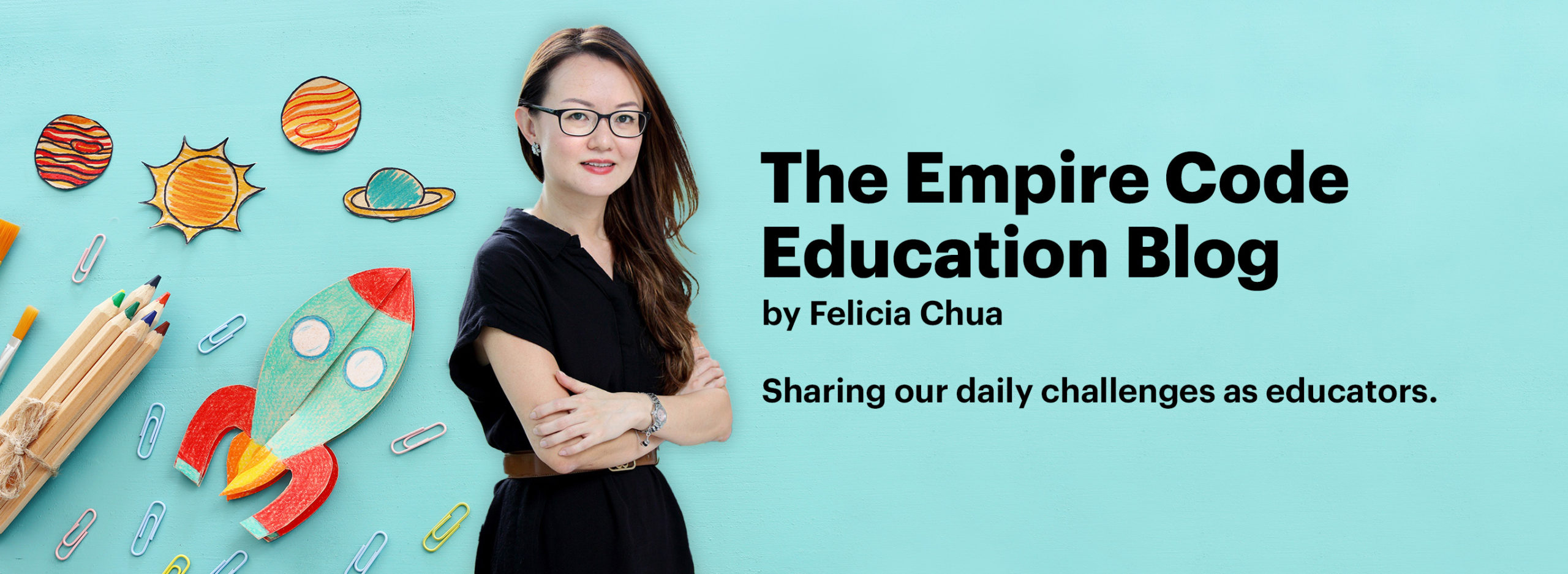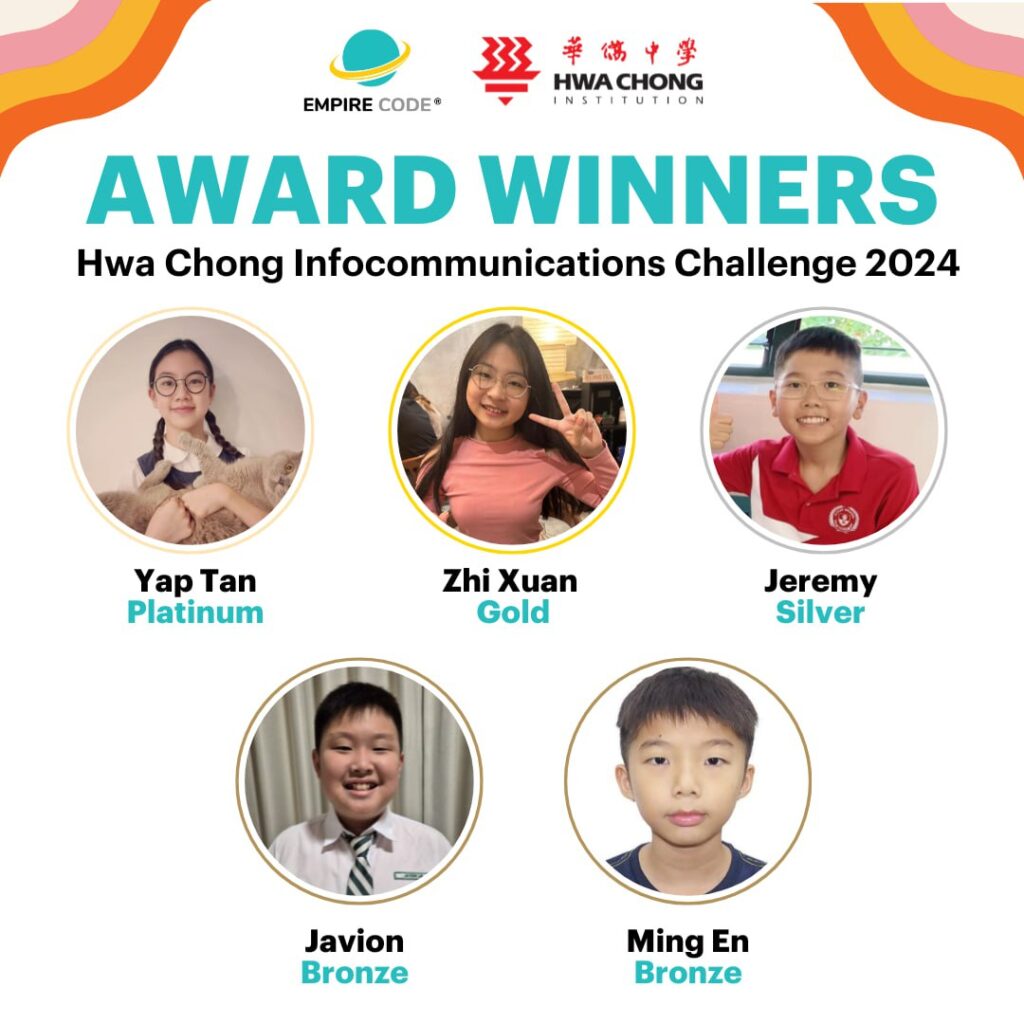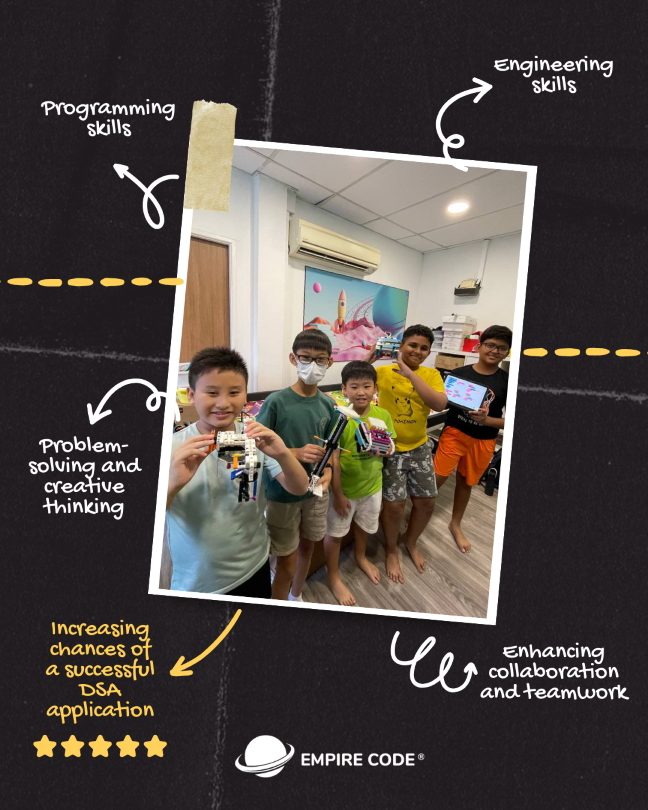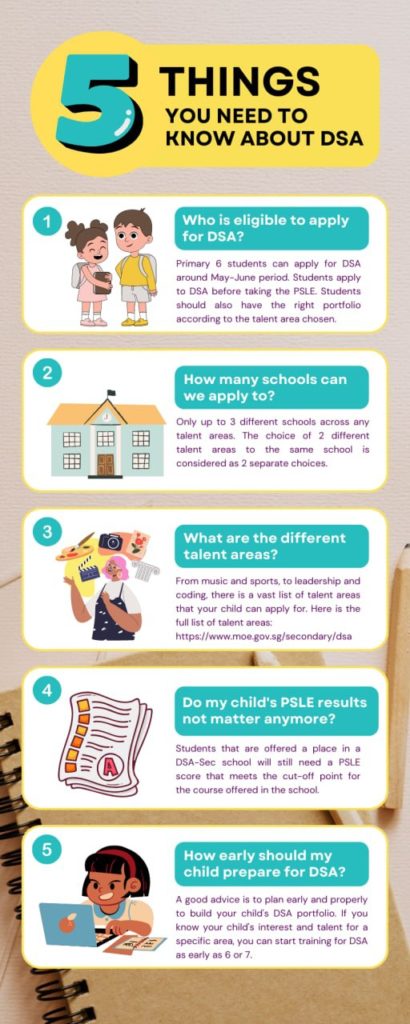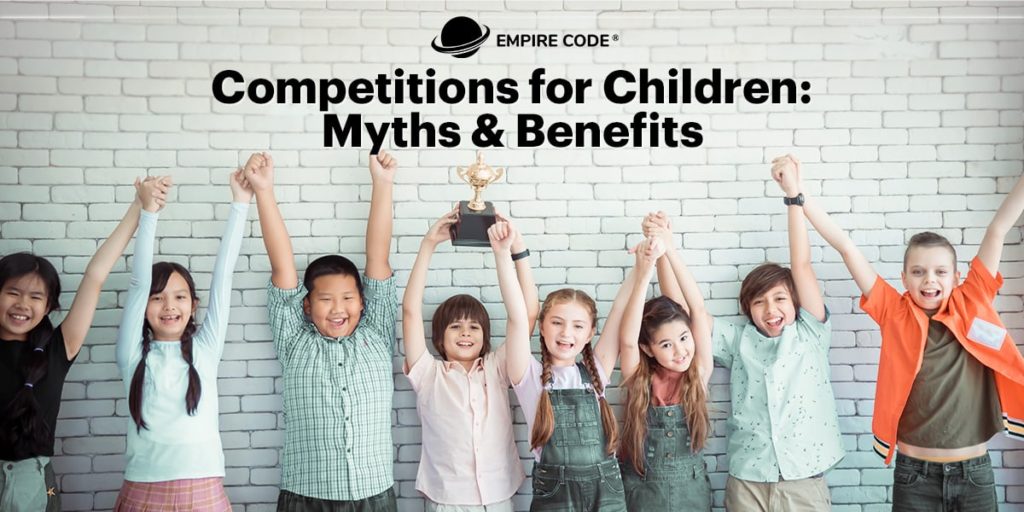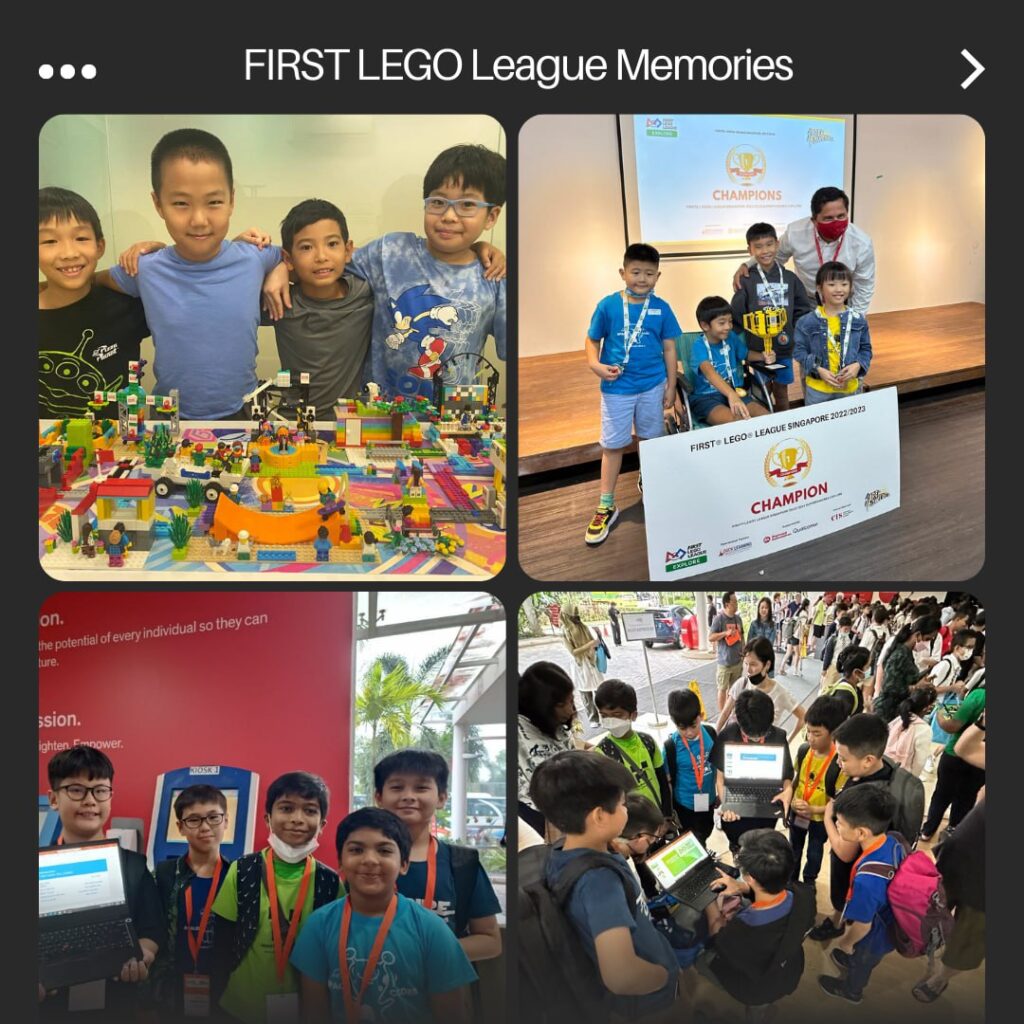
Introduction
Empire Code has been a beacon of excellence in robotics and coding, guiding young minds to success in the FIRST LEGO League (FLL) competitions for the past four years. This blog delves into the Empire Code FIRST LEGO League Training program, exploring its impact on students’ skills in robotics and coding and highlighting the benefits of participation for their academic and future careers. Discover how Empire Code’s structured training prepares students for success in national competitions and boosts their Direct School Admission (DSA) prospects.
Empire Code’s Achievements in FIRST LEGO League
Empire Code teams have consistently excelled in the FIRST LEGO League with remarkable achievements over the past two years:
- Champion and 1st Runner Up Titles in the Explore Category.
- Finalists in the Challenge Category. These accomplishments underscore Empire Code’s commitment to nurturing talent and fostering a competitive spirit among young robotics enthusiasts.
Understanding the FIRST LEGO League
The FIRST LEGO League, organized by Duck Learning, is a prestigious national robotics competition known across primary and secondary schools in Singapore. It comprises two main categories:
- FIRST LEGO League Explore (Ages 6-9):
- Lower Primary kids work in a team of 5 to create a LEGO prototype and presentation aligned with the annual theme.
- Students use LEGO SPIKE Essentials to develop their projects and present them to judges.
- FIRST LEGO League Challenge (Ages 9-12):
- Upper primary kids work in a team of 5 and use LEGO SPIKE Prime to build robots that autonomously solve missions within a set time.
- In addition to robot games, students create an innovation project to solve a given mission.
Comprehensive 40-Hour Training Program
Empire Code’s comprehensive training program ensures participants are well-prepared for FLL competitions. Here’s how it works:
- Pre-Requisites:
- Completion of LEGO SPIKE Essentials Level 1 & 2 or LEGO SPIKE Prime Level 1 & 2, depending on the competition category.
- Team Formation:
- Students are grouped into teams of 5 based on their training availability and skill dynamics.
- Intensive Training:
- Over 3-4 months, teams work on preparing their robots and presentations under the guidance of experienced trainers. Parents will also receive biweekly feedback regarding the team’s progress.
- Skill Development:
- Participants learn advanced robotics techniques, including gyro movement, autonomous coding, and line following, which are necessary, especially for students interested in the DSA route via robotics.
Skill Development and Benefits
Participating in robotics competitions offers numerous benefits:
- Skill Enhancement:
- Hands-on experience in coding, robotics, and problem-solving.
- Development of soft skills such as teamwork, communication, and presentation abilities.
- Resilience and Innovation:
- Competitions teach students to think on their feet and develop creative solutions under pressure.
- Students learn to handle setbacks and persist in finding effective solutions.
- Competitive Edge for DSA Applications:
- The skills and experiences gained from robotics competitions help students stand out in DSA applications.
- Winning awards significantly enhances a student’s DSA application.
- Participation in nationally recognized competitions demonstrates a commitment to excellence and a passion for STEM fields.
The Empire Code Advantage
Empire Code’s trainers have extensive experience in preparing students for robotics competitions, providing a supportive and successful environment for participants. The 40-hour training program covers both technical and soft skills, ensuring well-rounded development.
Hear from our teachers: Sherine and Aaron
Sherine and Aaron, Empire Code’s competition managers, highlight the transformative impact of these competitions on young students. They emphasize how the challenges faced during competitions help students develop resilience and problem-solving skills, fostering a competitive edge and potential in kids, preparing them for future academic and career endeavors.
Hear from our parents: Angela
“As parents, we were impressed by the dedication and expertise of the coaches who worked with Aiden and his teammates. They provided valuable guidance and instruction on the technical aspects of robotics and programming, fostering a supportive and collaborative team environment that helped bring out the best in our son and his peers. We are proud of the hard work and commitment that Aiden put into this endeavor, and we are grateful for the school’s role in supporting his passion for robotics and STEM education. Thank you again for the invaluable support and resources provided to Aiden and his team. We look forward to continued collaboration with the school in fostering a love of learning and discovery in our children.”
Conclusion
Empire Code’s FIRST LEGO League training program offers students an unparalleled opportunity to excel in robotics and coding competitions. The skills learned and experiences gained not only prepare them for success in FLL but also provide a significant advantage in DSA applications. With Empire Code’s dedicated trainers and proven track record, students are well-equipped to achieve their full potential and make their mark in the world of robotics, building long-lasting memories with their teammates throughout the competition.
Enroll in Empire Code’s FIRST LEGO League training program today and embark on a journey of learning, innovation, and success. Empower your child with the skills and confidence to excel in robotics competitions and beyond. If your child is interested in joining FIRST LEGO League 2025, please contact us at +65 8145 5004.
